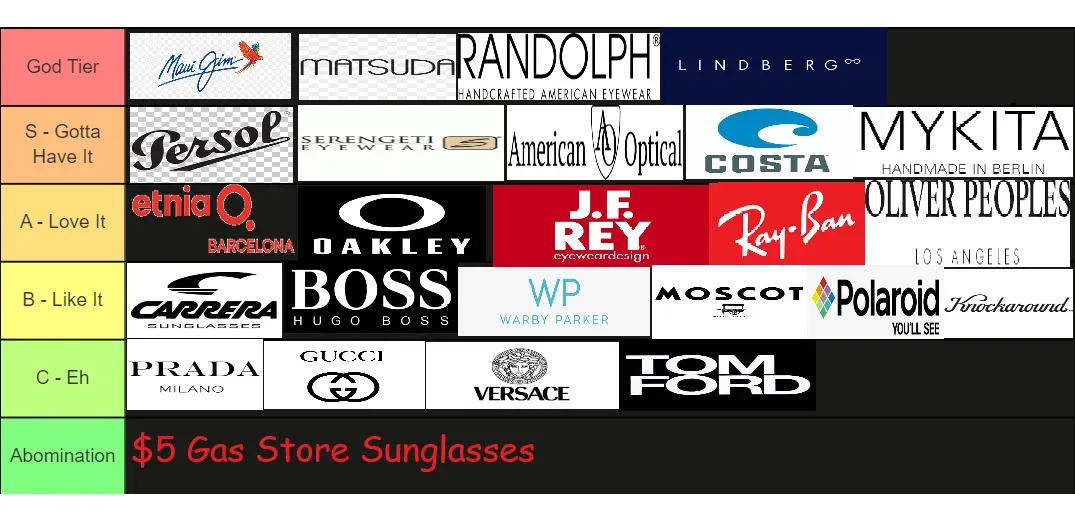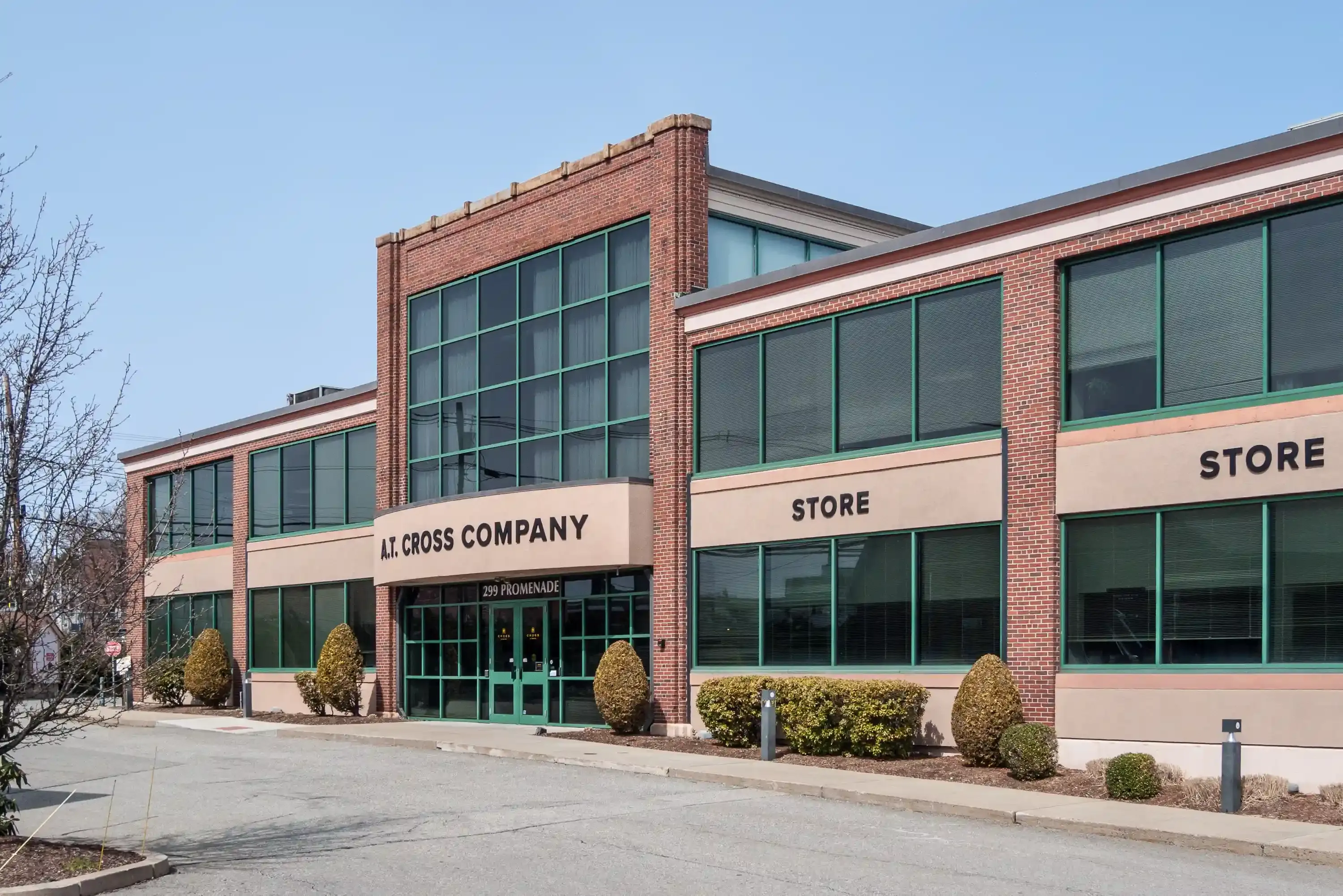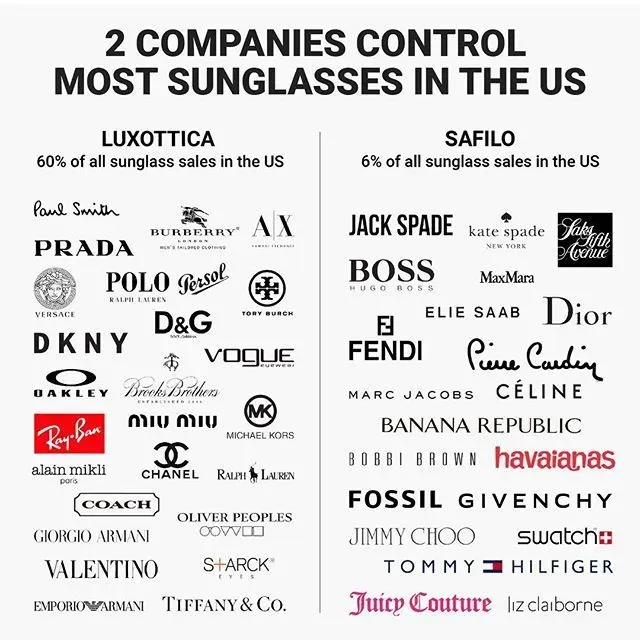Table of Contents
Walking outside on a sunny day without eye protection feels… incomplete, doesn't it? Sunglasses aren't just a fashion statement; they're essential gear for shielding your eyes from harsh UV rays and generally making the world look a little cooler. But step into the market, and you're faced with a dizzying array of choices. Hundreds, maybe thousands, of sunglass companies are out there, each claiming to offer the best style, protection, or value. How do you even begin to sort through them all?
Understanding Different Types of Sunglass Companies
Understanding Different Types of Sunglass Companies
The Big Players: Mass Market and Designer Brands
Alright, so when you first dive into this world, you quickly realize it's not all the same. You've got the giants, the ones you see everywhere, from department stores to airport shops. These are your mass-market brands and the big designer houses. Think Ray-Ban, Oakley, Prada, Gucci. They often fall under massive eyewear conglomerates, like Luxottica, which owns a huge chunk of the market, including Sunglass Hut. They have massive production scales, huge marketing budgets, and offer a wide variety of styles.
These companies are great for accessibility and brand recognition. You know what you're generally getting in terms of style and often, decent basic protection. They invest heavily in research and development for certain lines, especially performance-focused ones like Oakley. The downside? You're definitely paying a premium for the brand name, and sometimes the entry-level options in this category aren't necessarily better quality than a solid mid-range independent brand. It’s like buying a designer t-shirt; part of the price is the logo.
The Independents and Direct-to-Consumer (DTC) Crew
Then you have this whole other segment: the independent and direct-to-consumer sunglass companies. These are the folks often started by enthusiasts or designers looking to do things differently. They might focus on specific niches, like sustainability, performance fishing, unique aesthetics, or just cutting out the middleman to offer lower prices. Knockaround, for instance, built a name on affordable, durable, classically styled shades, bypassing traditional retail markups.
The cool thing about these companies is the variety and often, a clearer story behind the product. They can be more agile, experiment with designs, and sometimes offer better value because they're selling directly to you. You might find innovative materials, unique lens coatings, or a stronger focus on ethical sourcing or environmental impact. The challenge is finding them amidst the noise and trusting their quality compared to a legacy brand. It requires a bit more digging and maybe reading some reviews outside of their own site.
- Mass Market/Designer: Wide availability, strong branding, often higher price for name.
- Independent/DTC: Niche focus, potentially better value, unique styles, sometimes stronger mission.
- Performance Brands: Focused on specific sports or activities, advanced tech, higher price point.
- Value Brands: Emphasis on low cost, basic protection, often less durable.
What Sets Top Sunglass Companies Apart?
What Sets Top Sunglass Companies Apart?
It's More Than Just Looking Good: Quality and Durability
So, you've seen the piles of cheap shades that bend if you look at them funny. What separates the serious players, the top sunglass companies, from the rest? It often boils down to the nitty-gritty of materials and how they're put together. We're talking about frames made from sturdy acetate that holds its shape, metals like titanium or high-grade aluminum that don't corrode after a week at the beach, and hinges that actually feel solid when you open and close them, not like they're about to pop off.
It’s the difference between a pair you buy for a single weekend trip and one you expect to last for years, taking a few knocks along the way. Top companies invest in better manufacturing processes, stricter quality control, and materials science. They aren't just molding cheap plastic; they're using nylon composites, layered acetates, or even wood and horn for higher-end lines. This focus on construction means the sunglasses fit better, stay adjusted longer, and frankly, survive the inevitable drops and bumps of real life.
Seeing Clearly: The Lens Technology Edge
Beyond the frame, the real magic, and often the biggest differentiator among sunglass companies, lies in the lenses. Anyone can tint a piece of plastic, but providing genuine protection and enhanced vision requires serious technology. Top companies pour resources into developing lenses that block 100% of UVA and UVB rays – a non-negotiable baseline, by the way – but they go much further.
They offer advanced polarization that actually cuts glare effectively without distorting your view, anti-reflective coatings that stop annoying light from bouncing off the back of the lens, and hydrophobic treatments that repel water and oils. Some develop proprietary lens tints designed for specific environments, like boosting contrast on a cloudy day or reducing eye strain during long hours on the water. This isn't just marketing speak; a superior lens genuinely improves your visual experience and eye health.
Notable Sunglass Companies and Trends
Notable Sunglass Companies and Trends
Giants Still Loom Large: Ray-Ban and Oakley's Enduring Appeal
so even with all the new kids on the block, you can't talk about sunglass companies without mentioning the heavy hitters like Ray-Ban and Oakley. These aren't just brands; they're cultural icons. Ray-Ban with its timeless Aviators and Wayfarers, showing up on everyone from movie stars in the 50s to your neighbor today. They've managed to stay relevant by occasionally tweaking classics and dropping new colors, but honestly, their core appeal is that they just *work* for a lot of people and have a history behind them. You know the name, you know the look.
Oakley, on the other hand, is the performance beast. They made a name for themselves with aggressive designs and serious lens technology, originally for athletes. Their Prizm lenses, designed to enhance specific environments like road cycling or fishing, are genuinely impressive and a big reason why people stick with them, especially in the sports world. While they also have more lifestyle-oriented frames now, their DNA is still rooted in pushing optical limits. They command a higher price, but for many, the clarity and durability in demanding conditions are worth it.
The Rise of Sustainability and Niche Sunglass Companies
One of the biggest shifts we're seeing across many product categories, including sunglass companies, is the move towards sustainability. People are starting to ask where their stuff comes from and what impact it has. This has led to companies popping up that use recycled plastics, reclaimed wood, bamboo, or even bio-based materials for frames. Others focus on reducing waste in manufacturing or partnering with organizations to clean up ocean plastic, like some initiatives you might find discussed on sites like sunglasshub.org.
Beyond sustainability, we're seeing a lot more niche players. Brands focusing solely on fishing sunglasses with specific polarization and lens colors, companies making ultra-light frames for trail running, or designers creating truly unique, limited-run artistic frames. This fragmentation means you can find sunglasses tailored to super specific needs or aesthetics, which is great if you're looking for something beyond the standard mall options. It pushes the bigger companies to innovate too, or at least pay attention.
- Classic Icons: Ray-Ban, known for enduring styles.
- Performance Powerhouses: Oakley, focused on lens tech for sports.
- Sustainable Innovators: Brands using recycled or bio-materials.
- Niche Specialists: Companies targeting specific activities or aesthetics.
- Fast Fashion Entry Points: Very low-cost options, often trendy but less durable.
Direct-to-Consumer and Value-Focused Sunglass Brands
Another trend is the continued growth of direct-to-consumer (DTC) sunglass companies. These brands bypass traditional retail stores, selling directly to you online. This model often allows them to offer lower prices because they cut out the middleman's markup. Knockaround is a prime example, offering durable, stylish sunglasses at a fraction of the cost of some traditional brands. They prove you don't necessarily need to spend a fortune to get decent quality and good UV protection.
This segment also includes companies focused purely on value, sometimes offering multi-pair deals or extremely low price points. While tempting, especially for trendy styles you might only wear for a season, it's crucial to double-check the stated UV protection. A dark tint on a cheap lens can actually be worse for your eyes than no sunglasses at all, as it causes your pupil to dilate, letting in more harmful rays. So, value is good, but verify the basics.
Choosing the Right Sunglass Companies for Your Needs
Choosing the Right Sunglass Companies for Your Needs
Alright, so you've waded through the different types of players in the game – the big names, the indie rebels, the performance specialists. Now comes the practical part: actually picking a pair and, by extension, deciding which of these sunglass companies deserves your hard-earned cash. It's not about finding the single "best" company out there, because that doesn't exist. It's about finding the best company *for you* and what you plan to do while wearing them. Are you needing serious glare reduction for offshore fishing, bomb-proof durability for mountain biking, or just something stylish that offers reliable UV protection for your daily commute? Your needs dictate where you should focus your search when Choosing the Right Sunglass Companies for Your Needs.
- What's your primary activity while wearing them (driving, sports, casual wear)?
- What's your budget? Be realistic.
- How important is durability to you? Are you rough on your gear?
- Do you require specific lens features like polarization or special tints?
- Does the brand's mission or sustainability efforts matter to you?
- Are you looking for the latest trend or a timeless classic?
Finding Your Vision Among Sunglass Companies
So there you have it. Sorting through the vast number of sunglass companies doesn't have to be an overwhelming ordeal. By understanding the different tiers of brands, recognizing the markers of quality and innovation, and considering what truly matters to you – be it cutting-edge tech, sustainable practices, or just a solid, affordable frame – you can approach the market with confidence. It’s less about chasing the most expensive label and more about finding the right fit for your face, your lifestyle, and your wallet. Take your time, do a little digging, and you'll likely find a pair that not only looks good but genuinely serves its purpose, year after year. The choices are plenty, but a little informed perspective goes a long way in cutting through the noise.
